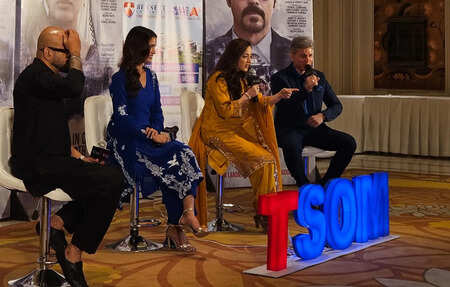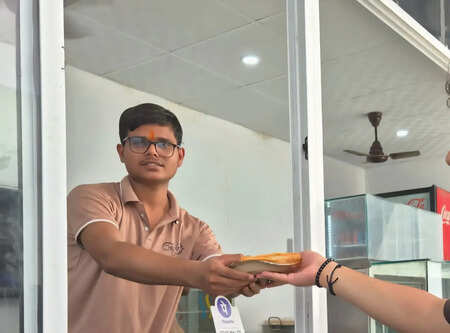The poor want their voices to be heard
Times of Bennett | Updated: Apr 17, 2019 16:18

By Mansi Sharma
Sustainable development Goals (SDGs) aim big- as one of its targets is to eradicate extreme poverty by 2030. It has been one of the most challenging things faced not only in India but internationally too.
Why is it important?
Reducingpoverty has become a major concern. It is more than just the lack of income or access to resources. Due to lack of poverty, children can’t go to school, people face social discrimination and they don’t have a say in the decision making.
How is government helping the impoverished?
According to Sustainable Development Report, 736 million people still live in extreme poverty. There have been lot of improvements over the recent decades in improving the condition and well-being of the poor by the Indian Government in launching programmes like Sampoorna Gramin Rozgar Yojana (SGRY) which focuses on the generation of wage employment, creation of durable economic structure in the rural areas and providing food and nutrition security for the poor but still the inequalities remain widespread in the developing world. Mohanlal Tiwari who lives in a Baroda village in Rajasthan said, “In my village most of them are farmers and they don’t even have cemented houses and one-time meal to eat. I want the government to hear our voice.” The government comes up with policies for the poor and needy but poverty is still conspicuous in our country.
India and Goal 1
According to the 2018 Global Multinational Poverty Index report, between 2005-06 and 2015-16, the incidence of multidimensional poverty in India was almost halved, climbing down to 27.5 percent from 54.7 percent. Shashi Mishra, a government teacher in Bihar said,” Everybody has the right to be heard and in most of the rural areas the people do not have the right to express and they are not reached by the government”. The first goal of Sustainable development focuses on eradicating poverty in all its forms and we must focus on the ways to reduce it and inform people about the policies made by Government of India which includes progressive schemes, which is the world’s largest employment guarantee scheme, the Mahatma Gandhi National Rural Employment Guarantee Scheme, and the National Social Assistance Programme.
Steps that can be taken to reduce poverty:
1 Providing more job employment
·2 Making policies related to Economic growth
3 Providing education facilities to the needy
4 Removing barriers to equal to resources
Why is it important?
Reducing
How is government helping the impoverished?
According to Sustainable Development Report, 736 million people still live in extreme poverty. There have been lot of improvements over the recent decades in improving the condition and well-being of the poor by the Indian Government in launching programmes like Sampoorna Gramin Rozgar Yojana (SGRY) which focuses on the generation of wage employment, creation of durable economic structure in the rural areas and providing food and nutrition security for the poor but still the inequalities remain widespread in the developing world. Mohanlal Tiwari who lives in a Baroda village in Rajasthan said, “In my village most of them are farmers and they don’t even have cemented houses and one-time meal to eat. I want the government to hear our voice.” The government comes up with policies for the poor and needy but poverty is still conspicuous in our country.
India and Goal 1
According to the 2018 Global Multinational Poverty Index report, between 2005-06 and 2015-16, the incidence of multidimensional poverty in India was almost halved, climbing down to 27.5 percent from 54.7 percent. Shashi Mishra, a government teacher in Bihar said,” Everybody has the right to be heard and in most of the rural areas the people do not have the right to express and they are not reached by the government”. The first goal of Sustainable development focuses on eradicating poverty in all its forms and we must focus on the ways to reduce it and inform people about the policies made by Government of India which includes progressive schemes, which is the world’s largest employment guarantee scheme, the Mahatma Gandhi National Rural Employment Guarantee Scheme, and the National Social Assistance Programme.
Steps that can be taken to reduce poverty:
1 Providing more job employment
·2 Making policies related to Economic growth
3 Providing education facilities to the needy
4 Removing barriers to equal to resources







